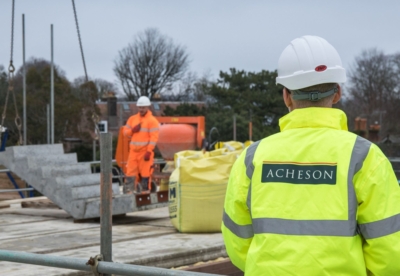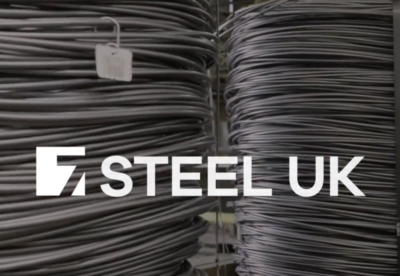The 220m tunnel is part of Phase 1 of a new £155m water pipeline to be constructed while protecting the watercourse and the wildlife that relies upon it.
Northumbrian Water’s Project Pipeline: County Durham and Tees Valley will see the construction of around 57km of new pipes connecting Lartington Water Treatment Works with 200,000 customers across the south of the North East.
The TBM arrived on site in April to begin its journey between two specially constructed shafts. This operation has created a pathway beneath the river, through which the new pipes will be installed.
Phase 1 of the project will connect Lartington, in Upper Teesdale, with Whorley Hill and Shildon, County Durham, and will be followed by a second phase extending the pipeline from Whorley Hill to Long Newton, connecting to the existing network that serves large parts of Teesside.
Work has been carried out by main contractors Farrans and subcontractors Joseph Gallagher, to create the two shafts, one on either side of the river. The western shaft is 8.0 metres in diameter and 32 metres deep, while the eastern shaft is 7.5 metres in diameter and 46 metres deep, the difference being due to the rising topography on the east bank.
Dave Mellor, Contracts Director for Farrans, said: “This highly technical and challenging operation has been a best-practice example of innovative civil engineering and we are delighted to have completed it successfully and on schedule.
“I would like to thank our team, our specialist contractors Joseph Gallagher and our client for collaboratively achieving this important milestone in a project which will secure the water supply to this region for years to come. The moment of break through into the west shaft was a cause for celebration on site following weeks of slow, incremental progress to create the tunnel.”
James Dawes, Northumbrian Water’s Project Manager said: “This project has been years in the planning, and ensuring that key strategic crossings, such as the River Tees, are done in the best way possible for the local environment and communities, has been vital.
“While it would have been possible to cross the Tees using a pipe-bridge, we had to consider such factors as how this would impact the stunning Teesdale landscape that will be here long after our team have completed the project and moved on.
“The use of no dig techniques, tunnelling or directional drilling, is becoming increasingly common in our projects, to reduce the impact on our region’s road and rail networks by reducing the need to dig long trenches.
“However, this is the first time we have employed it to cross a large river and the teams at Farrans and Joseph Gallagher Limited have done a great job to make this possible.”






.gif)









































 (300 x 250 px).jpg)



